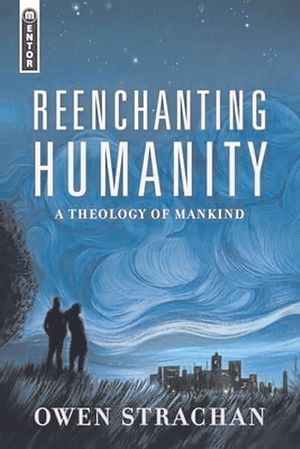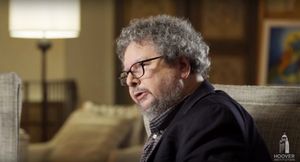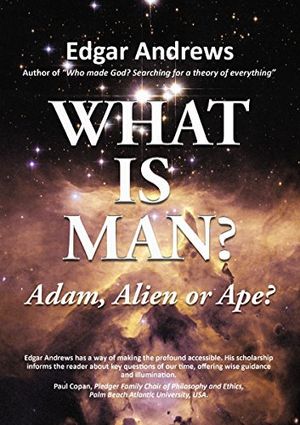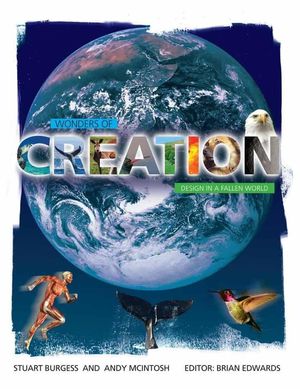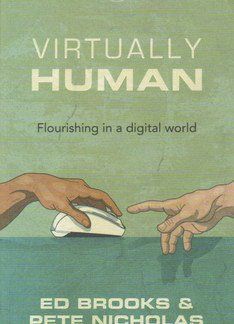It is rare for a sermon to reach the front page of a national daily newspaper, but that is what happened at the end of 2000. Archbishop George Carey was speaking to a congregation on the Isle of Man, drawing attention to the culture of ‘tacit atheism’ now dominant in our land. The leader of Anglicanism was effectively acknowledging that we live in a post-Christian culture.
We need to ask why our society can be described in this way. Many people appear to give lip service to a belief system, but then deny it by their actions (2 Timothy 3:5). We certainly see a form of Christianity in society, but is it accompanied by an experience of the power of God? The Archbishop’s comments would suggest that, whatever people may say they believe, the reality is that most people live without God in their lives.
Compartments
Surveys of the religious beliefs of Americans have produced surprising results. About 91% of people believe in a personal God who answers prayer, but only about 40% of scientists put themselves in this category. Recent surveys of the membership of the US National Academy of Sciences (‘top’ scientists) reveal that less than 10% profess any religious beliefs. Furthermore, the group of scientists most responsible for presenting ‘science’ to the wider community is dominated by people who have explicitly adopted atheism and a materialist philosophy of life.

These findings are actually of great significance; not because they show that science is hostile to Christianity, since science is essentially the systematic investigation of the way in which God upholds his creation. Rather, modern science has become a tool for advancing materialism (the philosophy that matter is all there is).
Whilst some leading British media scientists such as Richard Dawkins and Peter Atkins are openly hostile to Christianity, other scientists make the mistake of saying that science and religion are distinctly different compartments of life. The ‘science’ compartment addresses anything that can be investigated by scientific method and results in knowledge. The ‘religion’ compartment is where we place ethics, morality, values and aesthetics.
In this view knowledge does not appear in the religious compartment, because there is no way of obtaining knowledge apart from science. Therefore, ‘religion’ is inherently a subjective, private matter. The ‘ought’ word so often used in the context of morality is acceptable for individuals, but is deemed inapplicable for communities.
This compartmentalisation of science and religion has been adopted by many scientists. However, it is fundamentally at variance with Christianity. This is because God’s revelation is actually our only source of knowledge. Man cannot ‘know’ anything without receiving truth from God. God’s authority gives us knowledge both in ‘science’ (where our knowledge is imperfect) and in ‘religion’ (where God’s revelation brings us knowledge in its fulness).
Compartmentalisation of human experience has never been a part of biblical Christianity, because all truth is God’s truth and all knowledge is unified in Christ. Consequently, there is a real tension between Christianity and that version of ‘science’ which is offered to the public today.
Tacit atheism
The science that lays claim to all knowledge does so on the basis of a specific methodology, which assumes that it is possible by investigation to understand the natural causes of all observed effects. Science is considered the only way to research the causes of any event and generate knowledge about it. There are no exceptions to this principle, it is claimed, and ultimately present limitations in our knowledge are expected to be overcome.

So this kind of ‘science’ has an exclusive methodology that its advocates intend to be autonomous. They want God to be irrelevant to the process. The road to truth is via the practice of science and, in the words of Richard Dawkins, ‘Science is truth’. Students of science are taught how to gain knowledge by investigating the world, and they can do this completely independently of God. This is ‘tacit atheism’.
Some scientists (particularly leaders) go all the way and openly declare themselves atheists. Others, who may have some sort of personal faith, find it necessary to leave God outside the door of the laboratory. When they practise science, they conform to norms that are still policed by their atheistic leaders.
Nihilism
The post-war consensus was that our social problems are due to ignorance and poverty; the vision was that these problems could be solved by education and social engineering. Science would provide the technology to make change possible and the humanities would provide the vision. However, instead of vision, the humanities have become increasingly affected by nihilism. In nihilism there is no meaning or direction, and moral values are absent. Art, literature, music, the social sciences, psychology and philosophy, all seem to be ‘losing their way’.
A major driver for these trends has surely been science’s exclusive claim to knowledge. The ‘natural’ is eating up everything else. Values, choices, ethics, beauty, vision, love: all these qualities are reduced to natural causes. ‘Love is just a brain state’ according to the advocates of naturalism.
Relegated to the realm of subjective experience and denied access to knowledge, the humanities have become the seedbed for post-modernism and pervasive relativism. These disciplines have become similarly affected by ‘tacit atheism’ and there is no place for God.
If the intellectual world is permeated by ‘tacit atheism’, it is not surprising to find that the population at large is floundering. Since man is fundamentally a spiritual being, a yawning gap has emerged between man’s intellectual world and his spiritual needs. This gap is rapidly filled by the irrational and superstitious.
New Age, occult, mystical, ceremonial and sectarian religions are now pursued by many in order to satisfy their felt needs. We live as though God does not exist, but we indulge ourselves with religious practices because our hearts hunger for those very things that our minds do not allow.
If this analysis of the problem is valid, then the response that the church of Christ needs to make to it is necessarily radical. Calls to evangelism must include addressing the basic assumptions of ‘tacit atheism’. We need to restore a Christian foundation to knowledge. This means challenging the idea that science has an exclusive methodology that gives science alone the right to talk about ‘knowledge’.
Wisdom
The true starting point has been given by Solomon: ‘The fear of the Lord is the beginning of wisdom’ (Proverbs 1:7). God’s revelation of himself and his mighty acts are the foundation for all knowledge.
If we do not set out in our science to study the way God upholds his creation, then eventually we will undermine the integrity of our own discipline. This is because without God we have no basis for being confident in the use of reason and we have no foundation for thinking that we can ‘know’ anything.
Similarly, in the humanities, if we do not start out with the knowledge that man is made in the image of God, then we have no solid foundation. We are on a slippery slope, with no bright future for aesthetics, free agency, psychology, literature, music and the arts.
But the alternative starting point is one that requires submission to God’s revealed truth. Human autonomy is replaced by the spirit of discipleship. These prerequisites are deeply objectionable to the modern mind, yet are liberty and light to the Christian.
Professor Phillip Johnson’s recent book, The Wedge of Truth (InterVarsity Press), is helpful in showing how a Christian foundation for knowledge ‘fits into the specific Christian gospel, and how and where questions of biblical authority enter the picture’. ‘As Christians develop a more thorough understanding of these questions, they will begin to see more clearly how ordinary people – who are not scientists or profound scholars – can more effectively engage the secular world on behalf of the gospel’ (p.16).
What then is the way forward? The Archbishop faces a serious problem within Anglicanism. But it must be added that the problem is widespread in the U.K. and our understanding of ‘the Christian mind’ is emaciated as a result of years of pursuing a different direction.
Further initiatives
The time appears right for further initiatives to be launched to help Christians think through these issues. One of these is to have a week-long summer school to stimulate the thinking through of various disciplines from a Christian perspective. It will be very useful to have a mailing list of people that would like to support such an initiative. If you would like to be kept informed, please write to David Tyler at d.tyler@mmu.ac.uk.
In summary, what we seek is a restoration of the Christian mind in every area of life. We need to bring discipleship into Christian scholarship. We need people in the sciences and humanities who will apply the Word of God to their disciplines. We need people who will pray – to turn the vision into reality!




